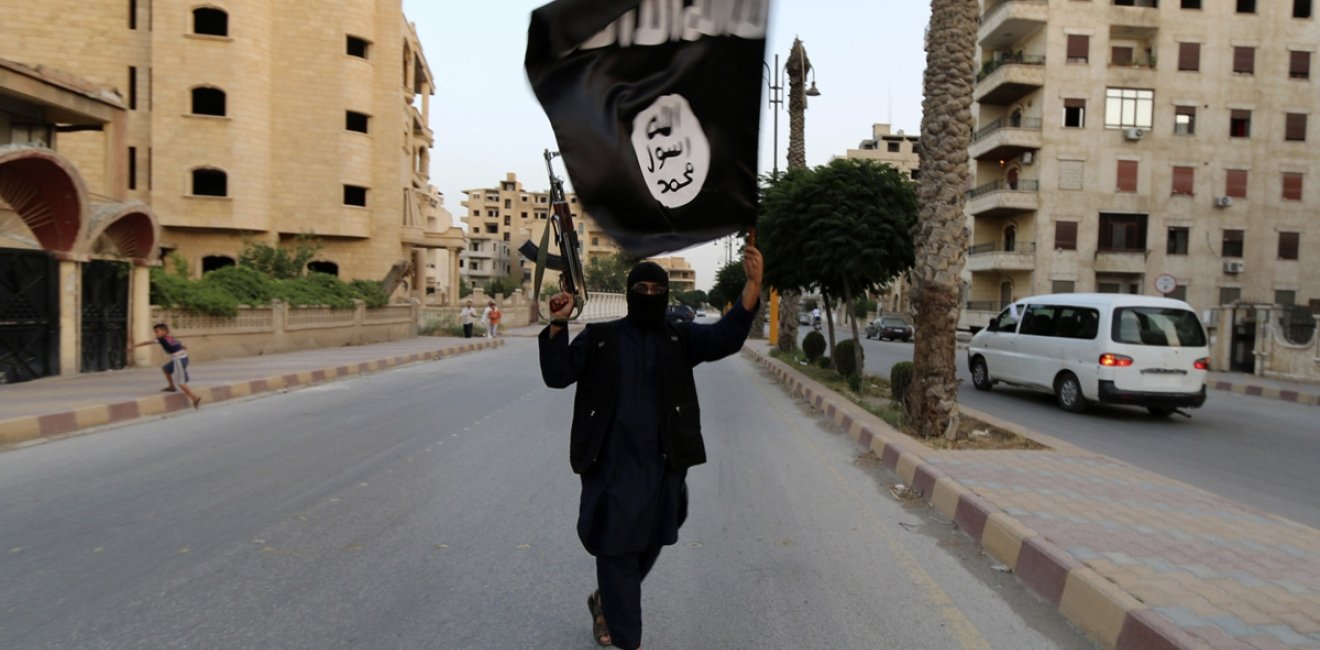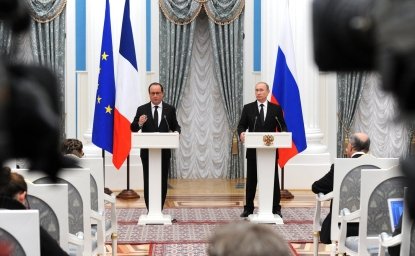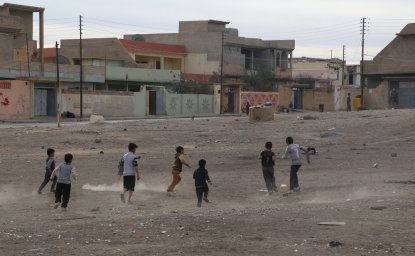The recent Congressional testimony of Director of National Intelligence James Clapper sharply frames the conundrum the United States faces when countering the Islamic State and other jihadists. The ISIS threat is growing, yet America's ability and capacity to counter it is not.
This doesn't necessarily mean that the United States is about to suffer a series of ISIS-directed or inspired attacks, though the intelligence assessment suggests that threat is growing. In the last decade and a half, there has not been a single successful terror attack directed by a foreign terror organization against the homeland. ISIS as well, since its emergence in 2014, has been unable to do that. (The shootings in San Bernardino, Cali., appear to have been a case of lone-wolf terror, inspired by ISIS and general jihadist ideology, but neither planned nor directed by ISIS operatives.)
What it does mean, however, is that ISIS, along with the phenomenon of global jihad it represents, is here to stay -- not as an existential threat but as chronic one, and a serious challenge to global security. Here are five reasons why.
Truly defeating ISIS would mean addressing the underlying dysfunction and division that are now loose in the lands of the Arabs -- in Libya, Syria, Iraq, Yemen, Egypt -- and having Muslims rise up to delegitimize their own extremists.
First, it's been almost two years since ISIS declared its so-called Caliphate. And while the United States and its allies have achieved some clear gains -- depriving ISIS of a quarter of its territory in Syria and Iraq -- the group has now spawned a genuinely regional and international presence. It has 50 affiliates in 21 countries and has managed to pull off attacks either directed or inspired against three of the five permanent members of the U.N. Security Council -- France, Russia, and the United States. Its affiliates have carried out deadly attacks in West Africa, Tunisia, Turkey, Lebanon, and Indonesia. Its media operations have only grown in sophistication, and ISIS seems to have little difficulty recruiting local partner organizations, and even less trouble in exploiting the hopes and fears of disaffected Muslims who then become lone wolves.
ISIS thrives, or at least is able to survive, in a broken Middle East and in a badly divided Muslim world. The United States cannot fix either.
Second, ISIS isn't some externally created terror organization, the product of one evil mind. It is an outgrowth of a broken, angry, and dysfunctional Middle East where the lack of effective leadership and representative institutions, and the pestilence of bad or no governance, have created ample space for the organization to rise. Driven by a vicious extremist Islamic ideology which draws upon actual Islamic texts, and by conventions and practices plucked from an earlier age, the group has carved out a role for itself and feeds largely on sectarian tensions between Sunnis and Shia. It fashions itself as the protector of the former against the latter, and as a bulwark against Western presence and expansion in the Arab and Muslim world. Truly defeating ISIS would mean addressing the underlying dysfunction and division that are now loose in the lands of the Arabs -- in Libya, Syria, Iraq, Yemen, Egypt -- and having Muslims rise up to delegitimize their own extremists. ISIS thrives, or at least is able to survive, in a broken Middle East and in a badly divided Muslim world. The United States cannot fix either.
Third, the Paris attacks last November were supposed to be a transformative moment in the war against ISIS, and yet that moment proved to be far less consequential in mobilizing the international community or regional powers to concerted action. The inconvenient and painful reality is that there is no effective coalition, either in the region or among the international community, that is seized with the ISIS problem. Russia has its own agenda for Syria, which puts supporting the Assad regime ahead of concerted action against ISIS. Turkey, itself a victim of ISIS terror, seems far more worried about stopping Kurdish empowerment and separatism in Syria than about striking ISIS. No external power, including the United States, wants to deploy ground personnel in the thousands to root out ISIS, nor thinks that this idea is wise or feasible. The Arab states are unwilling and unable to join the military fight on the ground and to deploy their own forces. The Saudis are more concerned about the Houthis in Yemen, whom they see as Iranian clients. Indeed, Riyadh supports a variety of groups in Syria that are almost as extreme as ISIS. Like Russia, Iran seems more focused on bucking up Assad than on countering ISIS. In short, there is simply not enough will or skill in the region or abroad to mobilize any kind of grand and sustained coalition against ISIS that might bring about some determinative victory.
Fourth, ISIS is a serious threat to international security. But ISIS isn't Nazi Germany or Japan during the 1930s; it's not going to take over Western Europe or parts of Asia. That's the good news. The bad news is that the threat hasn't created the kind of urgency that produces grand coalitions to wage total war. Moreover, as it seeks to inspire and recruit among disaffected Muslim populations, particularly in Europe, ISIS wages an asymmetrical war in the shadows -- it does not offer hard targets that are easy to identify and destroy. Indeed, massive refugee flows into Europe from Syria and Iraq create easy pathways for ISIS operatives that aren't easy to spot and are even harder to pre-empt.
There is simply not enough will or skill in the region or abroad to mobilize any kind of grand and sustained coalition against ISIS that might bring about some determinative victory.
Fifth, the cruel reality is that there may be no determinative or final victories in the fight against ISIS. And we need to be careful in thinking that such a fix exists. After all, 9/11 led to the longest wars in U.S. history, and, in a cruel irony, to the emergence of al-Qaeda in Iraq, the forerunner to ISIS. The civil war in Syria then allowed ISIS to complete its rise. Fourteen years after 9/11, Osama bin Laden's al-Qaeda central, an organization we thought we had destroyed, may be a shadow of its former incarnation, and yet its affiliates in Iraq, Yemen, and North Africa are still capable of carrying out terror attacks. ISIS is far more capable, and is entrenched with a greater reach, even if its operational capacities to carry out attacks in the United States are still quite limited.
The tools at hand are limited and imperfect: They include support of local forces with airstrikes and special forces to deprive ISIS of territory in Iraq; looking for a political solution in Syria to erode ISIS's gains; countering its message on social media; disrupting its finances; and attacking its oil facilities. These aren't transformational tools that offer total victories. And they will take much time to work. It's just as well. Even if the United States and its partners manage to inflict massive damage to the Caliphate, retake Mosul and Raqqa, and have success in the deadly whack-a-mole game we play with ISIS all over the world, the long war against global jihad will continue. And there's likely little we can do to alter that all-too-painful reality.
This article was originally published here on Real Clear World.
The opinions published here are those solely of the author.






